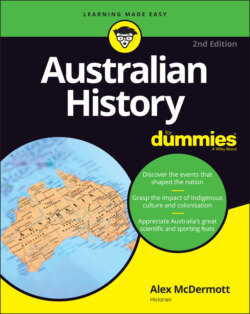Читать книгу Australian History For Dummies - Alex McDermott - Страница 79
Ending the trading monopoly game
ОглавлениеWhen the administration of the new colony was in the hands of the NSW Corps, the officers in the Corps set up trading monopolies over all imported goods. On his arrival, Hunter made no attempt to control or manage the emerging trade, and issued no rulings on whether the monopolies should be broken or maintained.
However, failing to control trade actually had the positive effect of allowing the market to open up. The monopoly was broken not by a governor, nor an order issued from London, but by convicts and common soldiers made good — convicts and soldiers put in place, moreover, by the officers themselves.
Because the officers prized so highly their status as ‘gentlemen’, they couldn’t be seen to be involved in trade, so they put their underlings and go-betweens in the cockpit. Convict servants and soldier privates didn’t take long to corner the market for themselves, quickly proving they were more than savvy enough to strike their own deals with ships’ captains once they’d built up enough capital to do so. They and newly arrived entrepreneurs from British India undercut the officers — who were furious, but couldn’t do much about it. (They’d started falling out among themselves by this stage, anyway.) The NSW Corps officers started getting out of the trading game, including the grog trade, and concentrated instead on developing their landed holdings.
The rum monopoly was over. Yet no-one had told the powerful men in England that.
